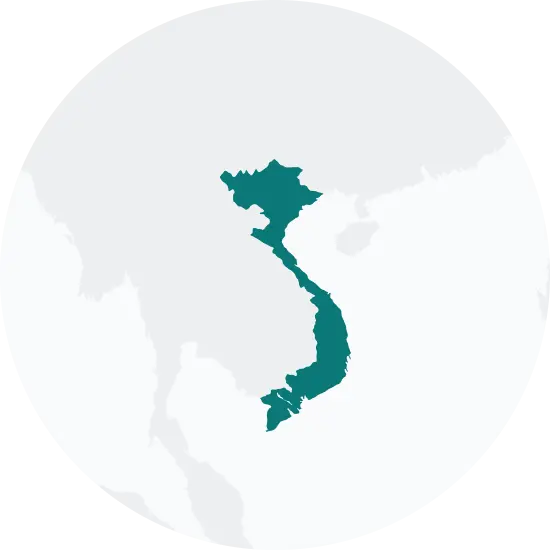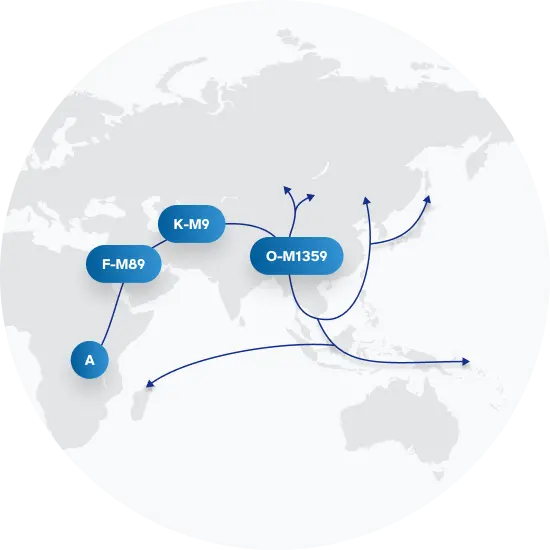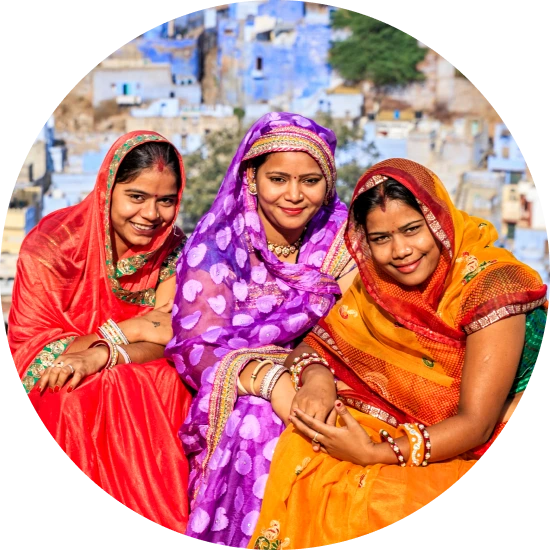Explore the Family Name Le
How common is the last name Le in the United States?
Based on the Decennial U.S. Census data, there has been a significant increase in the popularity of the surname "Le" from 2000 to 2010. In 2000, the surname was ranked 368th in popularity and rose to 277th by 2010, marking an impressive 24.73% change. The count of individuals with this surname also increased from 77,453 in 2000 to 110,967 in 2010, a growth rate of 43.27%. The proportion of people with this surname per 100,000 population also grew by 31.03%, from 28.71 in 2000 to 37.62 in 2010.
| 2000 | 2010 | Change | |
|---|---|---|---|
| Rank | #368 | #277 | 24.73% |
| Count | 77,453 | 110,967 | 43.27% |
| Proportion per 100k | 28.71 | 37.62 | 31.03% |
Race and Ethnicity of people with the last name Le
When it comes to ethnicity, the Decennial U.S. Census data indicates that the majority of individuals with the surname "Le" have an Asian/Pacific Islander identity. This group accounted for 95.15% in 2000 and slightly increased to 95.59% in 2010. Those identifying as two or more races made up 2.13% in 2000 but decreased to 1.92% by 2010. Similarly, individuals with a White ethnic identity dropped from 1.83% to 1.49% over the decade. Meanwhile, those who identify as Hispanic saw an increase from 0.56% to 0.75%. The percentage of Black individuals with the surname "Le" declined from 0.29% to 0.23%, and the American Indian and Alaskan Native category remained stable at 0.03%.
| 2000 | 2010 | Change | |
|---|---|---|---|
| Asian/Pacific Islander | 95.15% | 95.59% | 0.46% |
| Two or More Races | 2.13% | 1.92% | -9.86% |
| White | 1.83% | 1.49% | -18.58% |
| Hispanic | 0.56% | 0.75% | 33.93% |
| Black | 0.29% | 0.23% | -20.69% |
| American Indian and Alaskan Native | 0.03% | 0.03% | 0% |
Le ancestry composition
23andMe computes an ancestry breakdown for each customer. People may have ancestry from just one population or they may have ancestry from several populations. The most commonly-observed ancestry found in people with the surname Le is Vietnamese, which comprises 81.2% of all ancestry found in people with the surname. The next two most common ancestries are British & Irish (4.8%) and Chinese (4.6%). Additional ancestries include French & German, Indonesian, Thai, Khmer & Myanma, Eastern European, Chinese Dai, and Spanish & Portuguese.
Ready to learn more about your ancestry? Get the most comprehensive ancestry breakdown on the market by taking our DNA test. Shop 23andMe
| ANCESTRY BREAKDOWN | COMPOSITION |
|---|---|
| Vietnamese | 81.2% |
| British & Irish | 4.8% |
| Chinese | 4.6% |
| Other | 9.4% |

Possible origins of the surname Le
Your DNA provides clues about where your recent ancestors may have lived. Having many distant relatives in the same location suggests that you may all share common ancestry there. Locations with many distant relatives can also be places where people have migrated recently, such as large cities. If a large number of individuals who share your surname have distant relatives in a specific area, it could indicate a connection between your surname and that location, stemming from either recent ancestral ties or migration.
Based on 23andMe data, people with last name Le have recent ancestry locations all within Vietnam.
| RECENT ANCESTRY Location | Percentage |
|---|---|
| Ho Chi Minh City, Viet Nam | 91.40% |
| Thua Thien Hue, Viet Nam | 89.30% |
| Hanoi, Viet Nam | 88.20% |
| Da Nang, Viet Nam | 74.70% |
| Khanh Hoa Province, Viet Nam | 58.50% |
What Le haplogroups can tell you
Haplogroups are genetic population groups that share a common ancestor on either your paternal or maternal line. These paternal and maternal haplogroups shed light on your genetic ancestry and help tell the story of your family.
The top paternal haplogroup of people with the surname Le is O-Z24014, which is predominantly found among people with East Asian & Indigenous American ancestry. Haplogroup O-Z24014 is descended from haplogroup O-M1359. Other common haplogroups include O-F2758 and O-B427, which are predominantly found among people with East Asian & Indigenous American and East Asian & Indigenous American ancestry. Other surnames with similar common haplogroups are: Nguyen, Tran, Pham, Vo, Phan, Dang, Huynh, Do, Hoang, Bui.
The most common maternal haplogroups of people with Le surname are: F1a1, F1a_c, M7b. These most commonly trace back to individuals of East Asian & Indigenous American ancestry.
 Paternal Haplogroup Origins O-M1359
Paternal Haplogroup Origins O-M1359
Your paternal lineage may be linked to the Cham
One of the many populations harboring members of haplogroup O1b1a1a1a1 is the Cham ethnic group, a group of people who speak Austronesian languages in Mainland Southeast Asia. Austronesian languages make up a language family that is extremely large and widespread, comprising over 350 million people on islands such as Madagascar, Easter Island, and many others. However, Austronesian languages are less common on mainland Asia, with a notable exception being the Chamic language. Research suggests that ancestors of the Cham people migrated from Southeast Asian islands to the mainland around the year 500 BCE, and that early Cham populations quickly began mixing with indigenous southern Vietnamese populations. As a result, the Chamic language now has words that were borrowed from languages spoken by indigenous Vietnamese people. It is likely that an ancestral Kinh population was one of the populations that mixed with the Cham people shortly after their migration to mainland Asia.
Your maternal lineage may be linked to the ancient people of the Indian subcontinent
While Haplogroup M is widespread throughout South and East Asia, it is more diverse on the Indian sub-continent than anywhere else in the world. The high degree of diversity of M in India is likely tied to its ancient arrival here nearly 50,000 years ago. In addition to M2, which is found throughout the subcontinent, there are dozens of haplogroups branching off of M that exist in India. These branches are often connected to specific regions, tribes, or ethnic groups. For example, haplogroup M18 is found among the Oraon peoples of eastern India and Bangladesh, while haplogroup M41 is common among the Pardhan speakers of eastern India, and haplogroup M31a can be found on the Andaman Islands, just off the southeast coast of India.

What do people with the surname Le have in common?
Spoiler alert: it's complicated. People with the same last name are usually no more genetically similar than a randomly sampled group of people from the same population. That said, people with the same surname are more likely to have similar ancestries than randomly sampled individuals. The reason is the tendency of people with similar cultural or geographical backgrounds to preferentially mate with one another. That's why people who share a surname may be more likely to share traits and tendencies in common than people within the general population. Check out the percentages below to see the prevalences of tastes, habits, and traits of people with your surname compared with prevalences among 23andMe users.
Preferences
Traits
Habits
Wellness
Are health conditions linked to the last name Le?
The short answer is that, if there is an association between surname and health, it's usually more about your ancestry than your name. Individuals with a given surname are no more genetically similar than the general population but often have similar ancestries. The populations of people associated with those shared ancestries often have sets of genetic variations, also known as alleles, in common. Some of those alleles are associated with a greater likelihood of developing certain diseases.
Disease variant frequency by ancestry
Disease allele frequencies in populations associated with the surname Le are shown below. Important Note: not everyone with a disease allele will develop these health condition

























